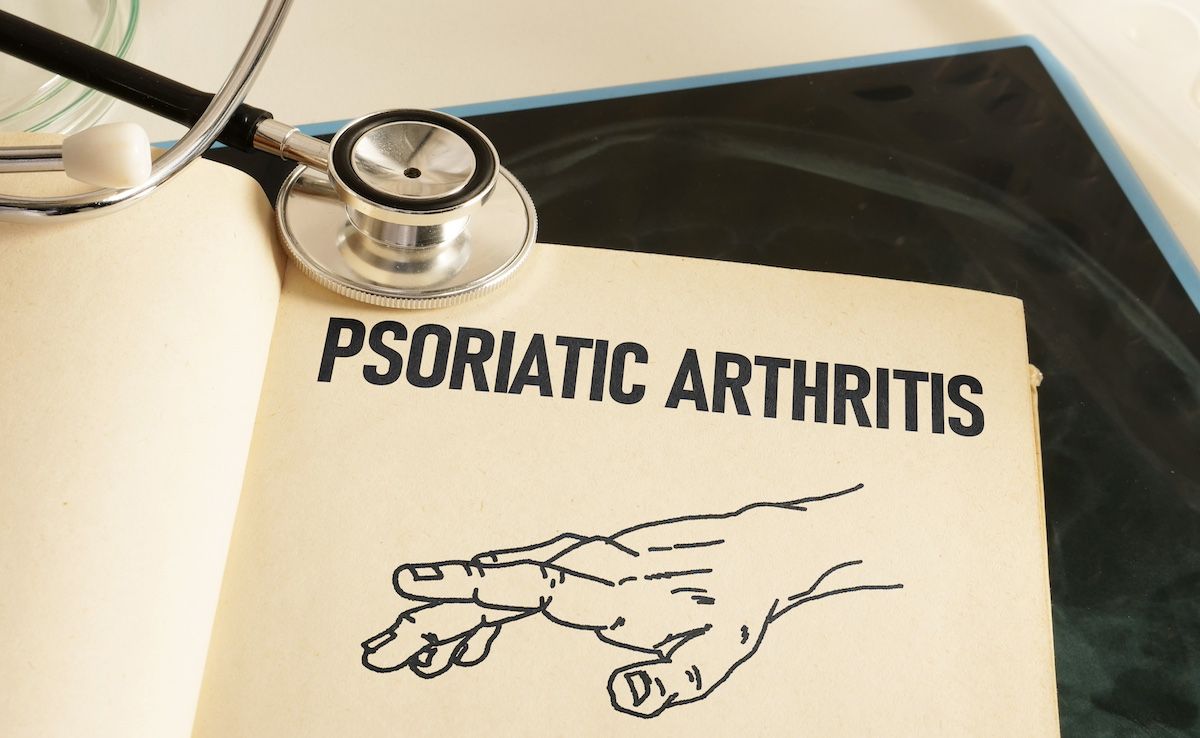- Center on Health Equity & Access
- Clinical
- Health Care Cost
- Health Care Delivery
- Insurance
- Policy
- Technology
- Value-Based Care
Pain, Fatigue With Bimekizumab for PsA Tied to Swollen Joints
Bimekizumab (Bimzelx; UCB Pharma) was approved by the FDA to treat psoriatic arthritis (PsA) on September 23, 2024, based on data from 2 phase 3 trials: BE OPTIMAL and BE COMPLETE.
Patient-reported pain was measured at 3 time points in the phase 3 BE OPTIMAL (NCT03895203) and BE COMPLETE (NCT03896581) trials of bimekizumab (Bimzelx; UCB Pharma) in psoriatic arthritis. Pooled findings presented at ACR Convergence 2024, the annual meeting of the American College of Rheumatology, show the anti–interleukin (IL)-17A, IL-17F, and IL-17AF monoclonal antibody markedly improved pain scores in patients evaluated after 16, 52, and 104 weeks in BE OPTIMAL and 16, 52/40, and 100/88 in BE COMPLETE.1 Patient pain was evaluated via control of swollen joint count and fatigue.
Based on BE OPTIMAL and BE COMPLETE data, the FDA approved bimekizumab on September 23, 2024, to treat patients who have active psoriatic arthritis, active nonradiographic axial spondyloarthritis and objective signs of inflammation, and active ankylosing spondylitis.2
In the trials, patient pain and fatigue were measured with the Pain Visual Analog Scale (Pain VAS) and Functional Assessment of Chronic Illness Therapy (FACIT)-Fatigue.1 To be included, patients had to have swollen joint control of at least 3 of 66 joints, not have a treatment history of a disease-modifying antirheumatic drug (BE OPTIMAL), and demonstrated inadequate response or intolerance of tumor necrosis factor inhibitors (BE COMPLETE). Those included received 160-mg bimekizumab every 4 weeks and could enroll in the open-label extension study BE VITAL (NCT04009499) if they completed week 52 of BE OPTIMAL or week 16 of BE COMPLETE.
The study investigators suggest that patients with psoriatic arthritis may have a primary treatment goal of complete resolution, “for promoting the greatest improvements in pain and fatigue.” | Image Credit: © Andrii-stock.adobe.com

Overall, equivalent patient totals completed the trials: 83.3% (n = 710/852 patients) from BE OPTIMAL and 80.5% (n = 322/400) from BE COMPLETE. Swollen joint count was classified into 3 categories: 0 (complete resolution), 1 to 3, and 4 or more. At baseline, patients in BE OPTIMAL had lower mean (SD) swollen joint count, pain, and fatigue scores:
- Swollen joint count: 9.2 (6.7) vs 9.9 (7.7)
- Pain VAS: 55.2 (23.9) vs 59.5 (24.3)
- FACIT-Fatigue: 37.0 (9.7) vs 35.6 (10.3)
In both trials at the 3 evaluation points, patients with a lower vs a higher baseline swollen joint count had consistently improved pain and fatigue scores with bimekizumab, although changes in fatigue results were less pronounced according to the authors, “possibly due to the multifaceted nature of fatigue in [psoriatic arthritis],” they indicated.
For example, at weeks 16 and 104/100 in BE OPTIMAL, 63% of patients with a swollen joint count of 0 vs 30.2% with at least 4 and 76.3% vs 50.8%, respectively, had at least a 30% improvement in their Pain VAS score. In BE COMPLETE at weeks 16 and 104/100, the corresponding percentages were 73.2% vs 27.7% and 83.0% vs 51.4%.
Further, among those with at least a 70% improvement in their Pain VAS score in BE OPTIMAL, 38.2% with a swollen joint count of 0 at baseline vs 12.2% with at least 4 swollen joints experienced this outcome, as did 57.3% and 16.4%, respectively, at week 104/100. In BE COMPLETE at weeks 16 and 104/100, the corresponding percentages were 50.7% vs 8.8% and 56.7% vs 11.4%.
As stated above, fatigue improvements were seen but were not as substantial as the results seen for pain. In BE OPTIMAL, those with a baseline swollen joint count of 0 saw 4.6-, 6.4-, and 5.5-point improvements at the 3 time points in their FACIT-Fatigue scores compared with 2.0-, 3.2-, and 5.2-point improvements in the patients with at least 4 swollen joints at baseline. In BE COMPLETE, there were 6.1-, 6.3-, and 6.1-point improvements seen over the evaluations for those with a baseline swollen joint count of 0 compared with 1.6-, 3.6-, and 5.9-point improvements seen for those with at least 4 swollen joints at baseline.
With their data indicating the best results were seen in the patients who entered the studies with baseline swollen joint counts of 0, the authors suggest patients with psoriatic arthritis may have a primary treatment goal of complete resolution “for promoting the greatest improvements in pain and fatigue.”
References
1. Husni ME, Mease PJ, Gladman DD, et al. Patient-reported symptoms improved with stringent control of swollen joints in patients with psoriatic arthritis: results from two phase 3 studies of bimekizumab. Presented at: ACR Convergence; November 14-19, 2024; Washington, DC. Poster 1473.
2. McNulty R. FDA approves bimekizumab for psoriatic arthritis, nonradiographic axspa, ankylosing spondylitis. AJMC®. September 23, 2024. Accessed January 15, 2025. https://www.ajmc.com/view/fda-approves-bimekizumab-for-psoriatic-arthritis-non-radiographic-axspa-ankylosing-spondylitis
Quality of Life: The Pending Outcome in Idiopathic Pulmonary Fibrosis
February 6th 2026Because evidence gaps in idiopathic pulmonary fibrosis research hinder demonstration of antifibrotic therapies’ impact on patient quality of life (QOL), integrating validated health-related QOL measures into trials is urgently needed.
Read More
